During the long blogging-hiatus that was summer (which got a functional extension here thanks to Pope Francis’s visit last week), I participated in Kidlit Summer School again, a month-long, on-line, free course organized by a gracious quartet of kidlit folk: Sudipta Bardhan-Quallen, Kami Kinard, Leeza Hernandez and Marcie Coleen. Last year’s focused on character. This year’s: plotting.
I am decidedly a pantser, not a plotter – meaning I generally fire before I aim: writing first, then going back over what I’ve produced like David Byrne saying “Good God, what have I done?!” Summer School offered up great tools — not that I’ll change my approach. But it did set me up with an arsenal of good revision techniques.
Over the past three months when I wasn’t working or doing summer things with my kids, or trying to train our new, 4-legged addition, Tilly, I spent the bulk of my time focused on issues having to do with my aging father, who lives 1000 miles away where I grew up, in St. Louis. It was hard not to reflect on his life as a narrative as I juggled thinking about plot with making sense of his decline.
With varying degrees of intentionality, my reading over the last several years has been sprinkled with books about aging and the end of life. Some have helped me to understand parts of what my dad and I, respectively, are experiencing. Some have offered good tips and advice in thinking about his care. And all have reminded me repeatedly of the gaps between reading and living.
I began several years back, by accident, with the audio book version of OLIVE KITTERIDGE (by Elizabeth Stout, read by Sandra Burr). The story collection focuses on one Olive Kitteridge, an elderly woman full of disappointment and judgment for family, friends and her small, changing Maine town. She reminded me much of my own aging father: crotchety, stubborn, resistant — and still compelling. The book gave me a small window into what it might feel like, for my dad, riding the waves of the rapid, unsynchronized changes in his world and in himself.
My dad is a patrician guy: tall, commanding, with a thick head of silver hair. A self-employed entrepreneur, he worked constantly, running the small company his father founded for over 50 years. He was always the one to call the shots in almost every sphere of his life.
I have long said that he would be the perfect guy to sit next to on an airplane: he is genuinely interested and interesting, asking smart questions and sharing great life experiences, and at the same time he has good respect for social boundaries. Still, with me and my siblings, his patented response to information that didn’t jibe with something he thought or believed was invariably “I don’t know that.” It was never clear whether he meant he didn’t ‘know that’ until you just told him, or he still didn’t ‘know that’ despite what you had said. Raised in upstate New York and Canada, it was probably destiny that he would land in a place dubbed “the show me state”.
When, three plus years ago, dad began reporting doorbells and phones ringing in the middle of the night, and complaining that a cup of coffee or can of Coke had been stolen from the fridge, we tried to reason with him. But he knew what he knew and he knew what he’d experienced. I initially saw his odd new complaints as being on the continuum of his personality: skeptical, doubting, and a little distrustful. And so I kept interacting with him pretty much as I always had – as the person I had always known. In retrospect, it is clear that dementia’s tendrils were latching onto his world; in the moment, though, it was harder to name it, much less imagine what its trajectory might be.
Not long after reading OLIVE KITTERIDGE I stumbled on a copy of Paul Harding’s beautiful TINKERS in an airport bookstore. It looked like the best thing the store had to offer (and quite possibly was), plus the book was small (I had bags). Much more internal, Harding’s narrative follows the mental meanderings and hallucinations of an old man as he lies dying. Snippets of his own life, his father’s life and other imagined lives interweave in a dense, intense, strangling-but-beautiful rope-of-a-vine. My dad’s dementia was only beginning then, but TINKERS drove home that the strange sounds he heard at night, the confusion of dreams with reality, and the growing frustration were just a preview of things to come.
A more purposeful, non-fiction choice came next: A BITTERSWEET SEASON, recommended by an old friend who was struggling with caring for her aging father. In this one Jane Gross, a longtime New York Times reporter on the elderly and aging, navigates the system on behalf of her own, ailing mother, recounting her learning and struggles. Full of information on the institutions and practices that have sprung up to care for an aging population, the book gave the lay of the land on all sorts of practical matters: plans to be laid, questions to ask, alternatives to be considered. All were framed within Gross’s own experience, driving home the magnitude of the stakes.
For so many elderly people a fall is the beginning of the end. My dad has long taken pride in the fact that he knows how to fall and so never breaks anything — saying he learned it as a young man. (In the marines? Skiing? Playing other sports? I never knew where.) He took his first big fall about three years ago, not long after his nighttime delusions began. That fall left him with a frontal lobe concussion and two weeks in rehab. Oddly, his night-time hallucinations faded for a bit.
When he was released from rehab he moved — at his insistence — back home, alone, his oversized house newly retooled with railings, grab bars, and a walker that he refused to use. He did his PT for a little while, but it didn’t take long for his focus to shift back to his omni-present yellow, legal-pad, “To Do” list and to work. He continued going into the office every day, driving himself despite both our protestations and his own mounting confusion.The expanse of space that he inhabited (the house once accommodated six of us plus pets) meant that it regularly took hours to find everyday items that he lost with increasing frequency: keys, checkbook, the yellow pad. The things that were hardest to find were invariably deemed “stolen”.
Dad lived in his house through last autumn, when we finally helped him move to an independent living facility. Last winter when I was laid up – and he was settling in there — a friend brought me a copy of Jane Gardam’s OLD FILTH. The outlines of the life of the titular character — Old Filth — felt eerily familiar, and the book offered an unexpected window into my father’s psychology. Like Filth, my dad was raised in an Anglican world long on learning but short on expressed love; he was sent off to an English-style, Canadian, boys boarding school, like Filth, at an obscenely young age (9, in my dad’s case). And his need for my mother (and, really, his own) was much like Filth’s for his wife: deep beyond deep, and rivaled only in focus by his attention to his work.
My dad continued going into work every day up until this May, when a flurry of falls triggered myriad stays in ERs, hospitals, and rehab facilities. In the midst of this chain of events, at another friend’s insistence, I began Atul Guwande’s BEING MORTAL. BEING MORTAL does a great job of examining how we came to this place of “treating” aging strictly as a medical condition, where longevity and safety trump all other considerations. Guwande interweaves stories of individual seniors with historical narratives, inspirational tales of professionals who push the envelope to create more intentional facilities for seniors, and Gawande’s travels through the end of his own father’s life. He also issues strong reminders for us to find out what really matters to each person as their days wane, and to let those desires guide the choices that we make for and with them.
Once dad had stabilized from the domino effect of physical indignities that his falls brought to bear, it was clear that independent living was no longer sustainable. He was increasingly confused and disoriented in both time and space, as the weeks off his feet took a significant toll both physically and mentally. Our hope was that once he got settled into a place and a routine, things would even out. In July, we moved him into a memory care facility.
Over the past two months there, his dementia has steadily progressed. He often thinks he is at a hotel, and talks about switching rooms. And no wonder: he spent so much of his life traveling, living out of hotel rooms. His current digs aren’t much different.
During one stretch when his meds were especially out of whack, visitors found him variously at an airport, in some far flung city (London, San Francisco, Niagara Falls, New Orleans, you name it), or trying to find his way back to his booth at a convention. More often than not he was prepping for a meeting: illegibly scribbling on his yellow pad or busily rifling through whatever paper ephemera might be at hand. Sometimes he was trying to catch a flight so he could meet my mom for dinner. Once, he was hiding from federal agents. Another time he was covered in ants. With a recent adjustment in meds, those extreme delusions have mellowed. In their wake, his sense of humor has returned — thankfully.
***
A couple years ago, before he moved out of his house, I toured an independent living facility with my father. The tour-guide/salesman gave me a copy of a pamphlet about how to talk to our elders. It offered up a sweet nugget of wisdom that I’ve carried with me since, which is this: the brains of old people – and moreso the brains of old people with dementia – are like those of the very young. They are changing quickly – so quickly that it is difficult to keep up with them. The job of those of us who surround them, this booklet argued, is to try understand where they are and what matters, and to respond in developmentally appropriate ways as we would with young children as they move quickly through their developmental milestones. The milestones at the other end of life, though, are harder to pinpoint.
I heard a recent This American Life segment (in Episode #532: Magic Words, starting at minute 29:05) that extended this same idea to interactions with dementia patients. The piece followed a pair of actors who lived with one of their Alzheimers-afflicted mothers, and spotlighted their work with the idea that that when their mother detached from reality, they might simply follow her lead – as if doing improv. Never mind trying to drag her back to their version of reality, which she clearly no longer shared. Instead, they entered her story no matter how strange it might be. Sort of like playing house or grocery store with a three year old. And — like playing with a young child — if you let yourself go with it, it is actually quite fun.
The other weekend I spoke by phone to my dad while my brother was visiting him. Dad told me about good, new work deals my brother was just back from drumming up in Alabama, Oklahoma, and Missouri. And about a football game between Oklahoma and Oklahoma. My brother, he said, was across the room, busy with his girlfriends from Alabama.
Nothing that my dad said was factually accurate: my brother — who has long worked alongside my father in the family business — had just returned from a trip to Montana. He is married to a woman who also hales from Missouri. I am certain that the details all connect to some memory or fragment of Dad’s former or current reality though: my brother was there. He had just returned from a trip. And while I’m pretty sure Oklahoma didn’t play Oklahoma that day Dad probably saw some football game on TV.
As I chatted with him, I tried not to laugh aloud at the goofiness. Since he was content, I was too. As muddled up as the details may be, my father is still writing his own story and creating his own narratives — never mind the factual inaccuracies. And, with any luck, he will get to keep doing so right up to the end of his life.


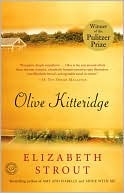
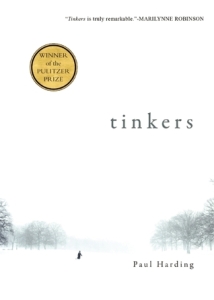
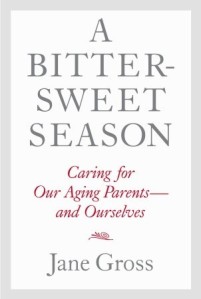
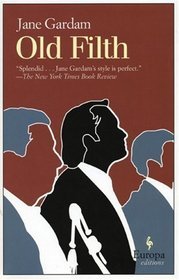
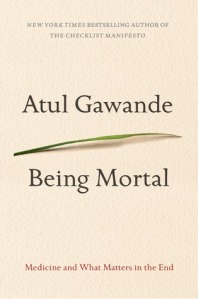
Anna, what a lovely and thought provoking window into your Dad. Makes me reflect on my own parents and my Mom’s insistence that if she ever develops dementia and thinks she’s Princess Narounimar (?) that I let her enjoy that reality. I’ll no longer roll my eyes at that suggestion.
Who is/was that Princess?!
Anna – thank you for writing this as my 89 year old mother in law lives with us and broke her hip a couple of weeks ago. She currently is in rehab and my husband and his siblings are trying to deal with how this fall will effect her quality of life. I look forward to reading a couple of the books on your list to understand what she may be feeling now. It also is very comforting to know that other people have similar issues in their lives with their aging parents. Best,
Caroline – glad there was stuff of use in there. When I went to our JBS reunion last year I felt like I had a LOT of conversations about this sort of stuff — you definitely are not alone!
Anna, I was hoping you’d post soon, but I certainly wasn’t hoping for this. It’s lovely and sad and somehow hopeful.
Thanks Liz.
Oklahoma played Tulsa two weekends ago, so your dad may have been more right than you realized!
Ha! I had this sense that he might be more on target on that one that I first thought…
Good blog Anna! Don’t be a stranger. xo Walker.